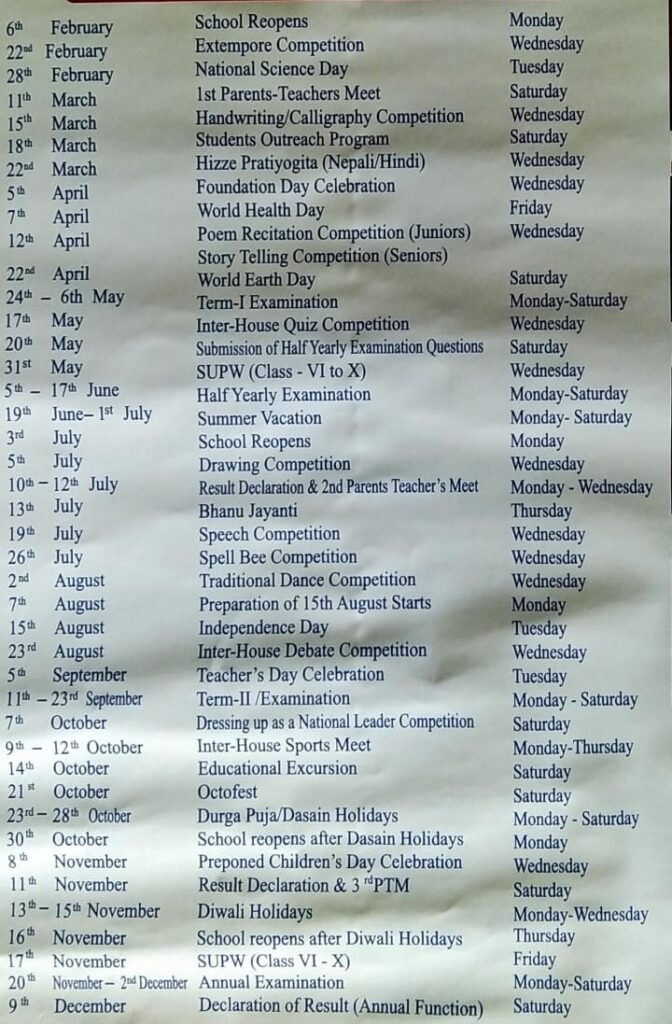The Historian’s Calendar: Extra Than Simply Dates
By admin / October 9, 2024 / No Comments / 2025
The Historian’s Calendar: Extra Than Simply Dates
Associated Articles: The Historian’s Calendar: Extra Than Simply Dates
Introduction
With nice pleasure, we are going to discover the intriguing matter associated to The Historian’s Calendar: Extra Than Simply Dates. Let’s weave fascinating info and provide recent views to the readers.
Desk of Content material
The Historian’s Calendar: Extra Than Simply Dates

The common-or-garden calendar, a seemingly easy instrument for organizing time, holds a fancy and multifaceted significance for historians. Removed from being merely a tool for scheduling appointments, the calendar – in its various kinds throughout cultures and eras – serves as a elementary instrument for understanding the previous. Historians do not merely seek the advice of a Gregorian calendar; they grapple with a mess of calendrical techniques, every reflecting distinctive cultural views, societal buildings, and even cosmological beliefs. Understanding when a historian may make the most of a selected calendar, subsequently, requires exploring the intricate relationship between timekeeping and historic interpretation.
The most typical state of affairs the place a historian employs a selected calendar is when coping with main supply materials originating from a tradition or interval that didn’t use the Gregorian calendar. The Gregorian calendar, the internationally accepted normal in the present day, solely gained widespread adoption within the sixteenth and seventeenth centuries. Earlier than that, varied techniques prevailed, every with its personal distinctive construction and start line. For instance, a historian learning historical Rome would must be intimately accustomed to the Roman calendar, a lunisolar system that differed considerably from the Gregorian calendar in its construction and size. Changing dates from the Roman calendar to the Gregorian calendar, and vice versa, is an important step in precisely inserting occasions inside a chronological framework. Errors on this conversion can result in misinterpretations of historic occasions and relationships.
Past merely translating dates, understanding the nuances of historical calendars permits historians to achieve deeper insights into the societies that used them. The Roman calendar, for example, was not merely a sensible instrument for organizing time; it was additionally deeply intertwined with spiritual practices and political energy. The manipulation of the calendar, such because the insertion of additional days or the alteration of the size of months, was usually a political act, reflecting the shifting energy dynamics inside Roman society. A historian learning this era would want to know the calendar’s spiritual and political dimensions to correctly interpret the actions and motivations of historic actors.
Equally, historians learning pre-Columbian America would want to deal with a wide range of indigenous calendrical techniques, every with its personal distinctive traits. The Mayan calendar, for instance, is famend for its subtle astronomical calculations and its intricate system of interlocking cycles. Understanding the Mayan calendar just isn’t merely a matter of translating dates; it requires a deep understanding of Mayan cosmology, arithmetic, and societal buildings. The calendar’s intricate cycles mirrored Mayan beliefs concerning the cosmos and their place inside it, offering helpful insights into their worldview and mental achievements. A historian learning Mayan society with out a agency grasp of their calendrical system can be severely restricted of their skill to interpret their achievements and perceive their societal group.
The usage of totally different calendars extends past historical civilizations. Historians learning medieval Europe, for example, would usually encounter dates recorded in line with the Julian calendar, the predecessor to the Gregorian calendar. The Julian calendar, whereas less complicated than the Gregorian calendar, additionally differed considerably in its calculations, resulting in discrepancies in relationship {that a} historian should account for. Moreover, the adoption of the Gregorian calendar was not uniform throughout Europe, and totally different areas adopted it at totally different occasions. This uneven adoption complicates historic analysis, requiring historians to rigorously take into account the particular calendar utilized in every area and interval.
Even throughout the trendy period, historians might encounter conditions the place they should use calendars apart from the Gregorian calendar. Historians learning the historical past of particular international locations or areas might must make the most of native calendars that have been used alongside or as a substitute of the Gregorian calendar. That is notably related in international locations which have skilled vital political and social upheavals, the place the calendar might have been altered or changed as a mirrored image of ideological shifts. As an example, the Soviet Union carried out a brand new calendar system throughout its existence, and historians learning this era would must be accustomed to each the Gregorian and the Soviet calendars to precisely interpret occasions.
Furthermore, the calendar’s position extends past merely relationship occasions; it performs a vital position in analyzing historic tendencies and patterns. Historians may use calendars to research the frequency of sure occasions over time, determine seasonal patterns in historic knowledge, or look at the affect of calendrical modifications on social and financial buildings. For instance, a historian learning agricultural practices in a selected area may use a calendar to research the timing of harvests and planting seasons over time, revealing helpful insights into the connection between agricultural practices and local weather change.
Moreover, the research of calendars itself generally is a vital space of historic analysis. Historians specializing within the historical past of science, know-how, or tradition might conduct analysis on the event and evolution of various calendrical techniques, inspecting their underlying ideas, their social and cultural contexts, and their affect on human societies. This type of analysis contributes to a broader understanding of human mental historical past and the methods by which people have sought to prepare and perceive time.
In conclusion, the historian’s relationship with the calendar is much extra complicated than merely noting dates. The selection of calendar is dictated by the historic context, the particular main sources being consulted, and the analysis questions being addressed. Understanding and using varied calendrical techniques just isn’t merely a technical talent; it’s a elementary side of historic methodology, permitting historians to precisely interpret occasions, analyze tendencies, and acquire deeper insights into the societies and cultures they research. The calendar, in its multifaceted kinds, serves as a vital key to unlocking the secrets and techniques of the previous.

![Venga CBD: [Athlete’s Choice!] Venga 2024 Training Calendar - More Than](https://images.milledcdn.com/2023-12-13/k8zHRMFzMHQKCycm/c@2x.jpg)






Closure
Thus, we hope this text has supplied helpful insights into The Historian’s Calendar: Extra Than Simply Dates. We hope you discover this text informative and useful. See you in our subsequent article!